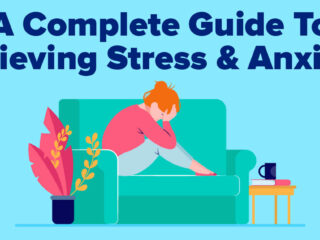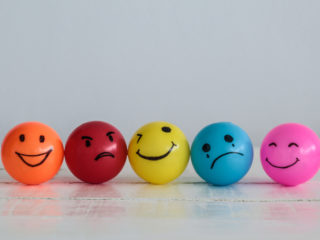In this decade of constant interaction, it can be hard to focus on one thing. Deadlines are looming, housework is growing, and all the while, you’re looking at your phone.
This problem you’re facing isn’t a lack of motivation but a lack of mental focus. You’re used to constant information being pushed on you, so when you step away from those connections, your mind starts to wander, almost like withdrawal.
Everyone suffers from this lack of concentration, but some people are hit harder than others. The best way to help you focus is to recognize the issue and actively address it. We are going to help you with that today!
What Is Mental Focus?
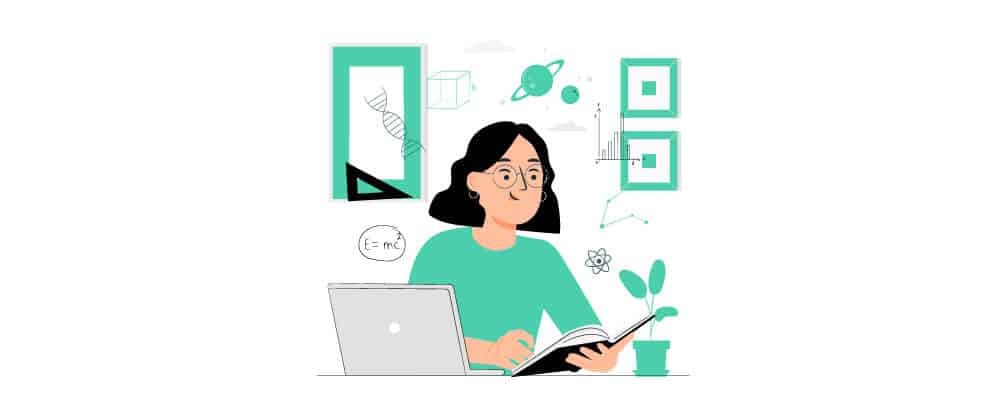
Mental focus is another form of concentration, but it focuses more on your willpower than your ability to stay focused on a TV show. Remez Sasson explains that mental focus is to do with your determination to act on and carry out a plan or decision without succumbing to distractions or boredom.
A person who has mastered their mental focus will be able to complete their task without unrelated thoughts drifting into their head. This is an unrealistic expectation, as you cannot block out everything; however, recognizing something as irrelevant, and putting a pin in it for another day, is a skill that mentally focused people share.
Reasons For Struggling To Concentrate
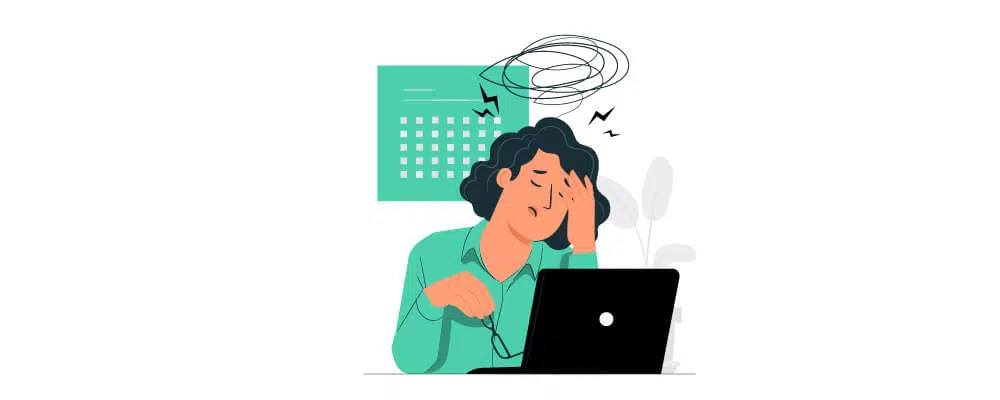
Being unable to concentrate doesn’t mean you lack interest. You simply find it difficult to keep one idea at the top of your mind.
This can mean that your schoolwork, paid work, or housework can be affected by your inability to prioritize and focus on one task.
This issue can sometimes mean that a lifestyle change is needed to help you focus again, or you may have a disorder. Diagnosis of a disorder can point you in a helpful direction, as others who have the same symptoms can share the techniques that help them concentrate.
We will discuss the symptoms of lacking concentration and the disorders and lifestyle choices that could be triggering it.
Symptoms
This isn’t the complete list of symptoms that show a lack of concentration, but if you are worried for yourself or another person, this list can help you confirm your suspicions.
Difficulty Sitting Still
If you sit down to start a project, write for a couple of minutes, and then get up again to do some housework, then you may have a problem concentrating.
To some people, getting up and walking around is a method they use to let their brains think while they do other tasks. This form of redirecting your attention creates less pressure on the main subject. After a couple of minutes of doing this second physical task, your brain has the answer you were searching for, and you can go back to your job. If this is why you cannot sit still, then don’t worry. This is a form of mental focus.
If you end up forgetting about the original task, then you are not performing a mental focus redirection process and instead are losing focus.
Difficulty Remembering Things
If you find it hard to remember things, you may be experiencing a problem digesting information. This could be because you weren’t truly concentrating on the data to begin with.
People with chronic pain often find it difficult to remember things due to their focus being on the task at hand and their body at the same time. Their body is telling them to focus on their illness, but their mentality is trying to think about something else. The brain then creates a split focus which results in less understanding.
Of course, you don’t need to have chronic pain to be in the same position. If your brain is taking in too much information or cannot retain information, then focusing on one subject for long enough to remember it will be a struggle.
Difficulty Thinking Clearly
Being unable to stick to one thought at a time often means that your mind becomes jumbled. Everything might seem linear to you, but talking aloud to another person should show you that these thoughts are jumping from one idea to the next.
To see if you struggle with this issue, try creating a stream-of-consciousness diary. This is when you write down everything you are thinking as it comes to you. When down on paper, you should see that the ideas, feelings, and thoughts are connected. If they aren’t, then you might be thinking clearly.
Although this isn’t a problem by itself, it is an indication that you are struggling to focus.
Lacking Focus
An obvious symptom is the lack of focus itself. Are you trying to work but find yourself back on your cell phone? Worst still, you aren’t even doing anything; you are just scrolling through Instagram and TikTok.
You might think that scrolling through the internet is a form of focus by itself, but remember that every tweet and every post is new information. It’s data that you drink in and use up in just a couple of seconds. Instead of concentrating, you are burning through your mental stamina and creating a new limit on how long you want to look at something.
Lacking Physical Or Mental Energy to Concentrate
Physical energy and mental energy are two separate things. It takes physical energy to concentrate on your gym workout. It takes mental energy to read a book. Sometimes your body craves one and rejects the others. After a long day walking, your body doesn’t want to do any more exercise, but a movie can occupy the mind.
But if you find that you can never focus on physical exercise, then you will be experiencing a mental block of some kind. Maybe your mind is suggesting new tasks for you to complete.
The other way can be a problem too. You might be unable to mentally concentrate as your body is asking you to move. This is often a sign of ADHD. Fidget devices, like clicking pens, fidget spinners, and pedals attached to a stationary chair, are great ways to fulfill the physical need and allow you to concentrate.
Potential Causes
Here we will list, describe and suggest help for the disorders that could be causing your lack of mental focus.
ADHD
We have talked about ADHD briefly before, but if you were not aware, ADHD stands for Attention Deficit Hyperactivity Disorder. The fact that “Attention Deficit” is in the name should tell you that a lack of concentration is expected.
The symptoms include impulsiveness, hyperactivity, and an inability to concentrate.
Some people with ADHD find fidgeting, moving, or standing during a task can help them focus as their hyperactivity is being tended to.
There is no cure for ADHD, but there are ways to manage your impulsive desires. Cognitive behavioral therapy is a top suggestion by psychological therapies; others with ADHD share their tips online. We suggest talking to a doctor and communicating with the community to get the support and help you need.
Alcohol Abuse
Alcohol abuse disorder or overusing alcohol has a direct correlation to mental deterioration. One method in which our brains help us focus is by constantly replaying a memory to us. If we know we have to clean the bathroom later, we will be shown this memory again and again until the task is done.
People who have abused alcohol will have damaged their brain’s memory pathways. Imagine a train on a track, but the track has a missing line. Your brain cannot continue the thought process, and so your concentration is lost. You might even be aware that you should be remembering something, but the damage is done.
These pathways might not be able to reconnect, but therapy can help you loosen that grip on your drinking to stop the problem from continuing.
Chronic Fatigue
Chronic Fatigue Syndrome is when a person is extremely tired. This tiredness doesn’t go away after sleeping. This syndrome can be caused by viruses, weakened immune systems, stress, and a biological, hormonal imbalance.
People suffering from this syndrome often find pockets of their life without any memory. Imagine spending your whole life wishing you had a couple of extra hours of sleep. These days feel like a blur, and nothing really sinks in.
Your body is conserving energy, and so it isn’t storing information as it should. This means you will have a problem recalling information which in turn means there won’t be any signals in your brain telling you to focus.
Again there is no real treatment for Chronic Fatigue Syndrome, as its causes are so vast. Talk to your doctor and ask them to formulate a treatment plan.
Concussion
A concussion is a mild brain injury that can be caused by an impact on the head. You can become confused, dizzy, sleepy, and nauseous.
Depending on how bad the impact was, these symptoms can last for a couple of hours to days. You will notice that light and noise can become painful during your recovery, and concentrating is nearly impossible.
As your brain is trying to heal itself, it will focus more on your body’s main organs and less on the environment around it.
If you have problems with your memory or blacked out from the knock, you should see a doctor as there could be more issues created by the impact.
Dementia
Dementia, at its core, is a brain impairment that affects memory, judgment, language, and behavior.
Because someone living with dementia has trouble recalling their short-term memory, they will likely lose focus on any given task. One way to help you stay on target is to reduce any overstimulation. This includes taking all the clutter out of your house, not putting on music as you work, and turning off the TV even if it is in a different room. Because concentrating is so hard for you, removing these excess distractions can help you focus.
Another way to help is by giving yourself simple tasks that you do daily. Repeating the same task over and over again will make it stick in your mind.
Of course, these tips are only helpful to someone in the early stages of dementia. At every stage, you should talk to your doctor about ways to slow down the illness.
Epilepsy
Epilepsy is when someone has recurring seizures. They often seem unprovoked, but they are usually caused by some kind of overactivity in the brain.
Epilepsy itself might not be the cause of your lack of focus, but the medication you take may be the problem. Of course, we are not saying to stop taking your medicine, but sometimes the reduced activity in your brain caused by the pills can cause memory problems which have a knock-on effect on your focus.
To help you focus, have a look at our tips below!
Insomnia
Insomnia is a sleeping disorder where the individual either struggles to fall asleep or struggles to stay asleep.
Just like with Chronic Fatigue Syndrome, this means that your body isn’t truly storing data from the previous day. When we sleep, we digest the information gathered in the day and sort it into useful information and non-useful information. The process is complicated, and we don’t quite understand how it works, but when sleep is disturbed, our ability to recall this information becomes difficult.
When you focus on a task, you often need your memory to help you answer questions, think of solutions or simply continue with the job. Your memory is connected to everything you do. Because you are unable to store your information efficiently, your memory will be weakened, and so will your ability to use it in your day-to-day life.
Depression
Depression is when someone experiences constant, persistent, or recurring intense feelings of sadness or dissociation. Anyone can become depressed, but if your upset doesn’t have an apparent cause and comes back multiple times a year, then you might have a Depression Disorder.
Depression is more than intense sadness; you often find yourself not engaging with the world, almost like you are moving on autopilot. Your body is shutting down as it tries to keep you away from the dangers it falsely preserves.
Because you are not connected to the world around you, and your brain is actively trying to shield you, your ability to focus is all to do with how well you can push through that barrier.
Forcing yourself to concentrate will take a lot of energy, which your body is refusing to give you. Whether you can focus and complete the task or not, you will be left drained, tired, and frustrated at your inability to do more.
If this sounds familiar, talk to your doctor about therapy and medication to lift the invisible barrier that stops you from living your life.
Schizophrenia
Schizophrenia is a type of long-term psychosis where a person cannot distinguish between their thoughts and reality. People with schizophrenia often see or hear things in their minds as if they were real; they often create delusions to help them navigate their muddled minds and the confusing world around them.
There is a common misconception, spread through movies and television, that people with schizophrenia are violent. This is not true. Schizophrenia doesn’t cause violence, but it does create a domino effect of confusion and isolation. People with this disorder often find their own idea of the world more logical than the real world and so distance themselves from friends and family.
If you have schizophrenia, you may find that there is contradictory information going through your brain. Because your mind is creating information, this means that you have less energy to focus on the task at hand. Not only is there less energy for the job, but you have to deal with possibly more exciting distractions.
Medication can help you manage or recognize unusual behavior, and therapy can help you using cognitive behavioral therapy.
Other Potential Causes
For most people, the lack of focus comes from poor lifestyle choices, but once you know what might be hampering your ability to concentrate, you can work on creating healthy and positive lifestyle changes.
Lack of Sleep
We have already talked about how sleep affects your memory, but it also gives you energy for the new day. When you don’t sleep for long enough, you cannot regain sufficient energy, which means your brain will process your thoughts slower. Slower thoughts mean gaps in concentration which in turn will lower your focus.
All of these create a domino effect towards confusion.
The simple solution is to give yourself more sleep. Change your sleeping schedule, stop using technology an hour or two before bedtime, and prepare to relax before bed. This should help you gain more sleep and focus when you wake.
Distractions
As the Black Eyed Peas once said, “We are the now generation.” We receive constant information all the time and expect to receive that information just as fast. Our brains are hardwired to pick up distractions to help us prepare for danger, but this helpful instinct becomes overwhelmed when the online world is constantly trying to get our attention.
We crave distractions and sometimes search for them when we know we should be working. To help you avoid distractions, take them out of the room you are trying to focus in. Your phones and laptops will have a function that stops you from using social media for a set amount of time. Utilize this function!
Poor Diet/Lack Of Exercise
You might think that a workout will leave you drained for the rest of the day, but it will actually give you an energy boost. If you eat a big healthy breakfast filled with nutrients, proteins, and balanced carbohydrates, you will provide yourself with the pre-work-out energy to exercise. Then when your exercise is complete, the adrenaline will help you focus on the day.
Sometimes a healthy diet can be enough of a change to power you through the day and give you a new kick of energy. Nutrience is what fuels our brains, gives us mental sharpness, clarity and allows us to focus. If you only eat high-carb meals, then you aren’t fueling the brain.
Protein and fats are what your brain means. This means low-fat diets can also ruin your concentration.
Side Effect From Certain Medications
Obviously, medications are not a lifestyle choice, but some medications have adverse effects on our mental abilities. If you have changed your medication and have noticed that focusing has become difficult, you might need to talk to your doctor about changing back. They will be able to direct you onto the right path, as they will know your conditions and your medical history, so they can suggest the most appropriate ways to help you concentrate.
Anxiety
Whether you have an anxiety disorder or are simply feeling anxious, you will notice that your body is filled with adrenaline, and you can barely sit down. Focusing in this state of mind is very difficult, as your body is telling you to run, hide, and get out of the situation.
In these moments, you should avoid drinking coffee and try to be active. Movement might be able to wear down your adrenaline rush of emotion. If that doesn’t work, try meditation. Forcing yourself to think of just one thing can push the other thoughts away.
Focusing can be challenging, so meditation might not work. Search for your best way to become calm and reinforce it when you need to concentrate.
Stress
To some people, stress is another form of anxiety. The two go hand in hand. Being stressed about a topic might seem like the best way to focus on it, but in reality, you will either panic or disconnect from the problem.
If you can deal with a stressful situation before it becomes a problem, you will be more likely to focus on the task. Don’t leave it to the last minute.
10 Tips To Improve Mental Focus
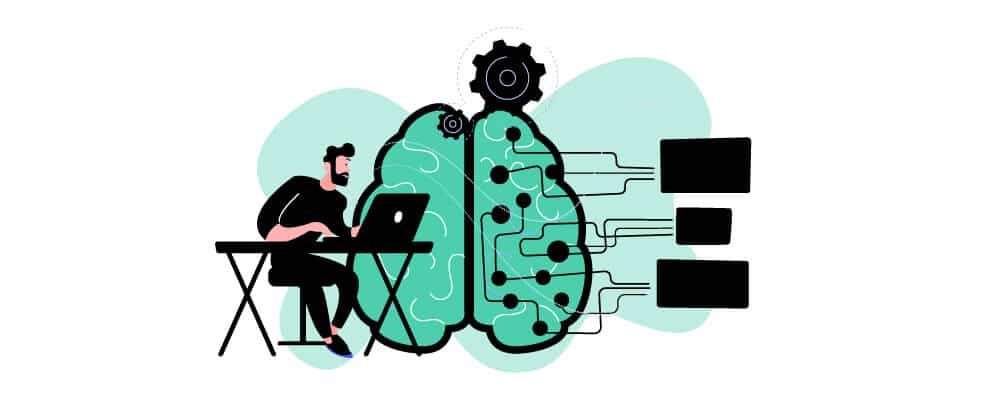
We have already mentioned some of these tips above, but we will go into more detail to help you improve your mental focus.
1. Improve Your Diet
The best foods to help you concentrate are ones that moderate your blood sugar and maintain your energy.
This means eating fruits, vegetables, and high fiber foods to balance your blood sugars, and nuts, berries, fish, and meat to power your brain. Ideally, you should avoid sugary food, which gives you a momentary high that ends in dizziness and drowsiness.
If you like to eat while you work, try adding blueberries to your desk. These are healthy snacks that balance your blood sugars without overpowering your senses. Taking a daily greens supplements like Athletic Greens or an alternative can help you increase your exposure to fruit and vegetables.
You could even add a nootropic to your daily routine. Nootropics are supplements that can improve your cognitive performance by altering the neurotransmitters in your brain. This is why nootropics are often called cognitive enhancers or “smart drugs.” One of the most popular nootropics is Alpha Brain from Onnit, this combination of amino acids helps with cognitive function and is a part of Joe Rogan’s supplement stack.
In a similar vein, your gut health can also help your mental clarity. For this reason, we also suggest adding a daily prebiotic and probiotic combination to your diet.
Here is a list of the best supplements for focus and concentration.
Studies have shown that adding a Lion’s Mane supplement to your diet can help improve cognitive performance and focus.
2. Start Moving More
Exercising is a health tip that can help you in almost every part of your life, including focus. If you start your day with a simple activity that gets you moving, like a short jog, a walk around the block or even cleaning your house, you will activate key chemicals in your brain which promote concentration, mental focus, and quicker thoughts.
These chemicals include dopamine, norepinephrine, and serotonin, all of which make you happy and help you focus.
You don’t need to go on a marathon to make this work; all you need is a simple exercise routine at the beginning of your day.
Even if you only do this once a week, you will improve your health, strengthen your physical movements, and power your brain.
3. Get Rid Of Distractions
There is a reason why libraries ask you to be quiet. Talking during a time of study will force your brain into concentrating on too many things. Something will have to give, and your mind will take the easiest route to accomplish.
If your current focusing area is filled with distractions, the same issue will occur. Take a look around and see what kind of distractions are currently present in your space. Should you remove your phone, should you turn off the television?
Sometimes the distraction is outside of your control. Noisy neighbors and screaming babies cannot be “turned off.” Instead, you might need to invest in noise-canceling headphones.
4. Practice Mindfulness
Mindfulness is a form of self-care. You allow your mind and your body to become relaxed and calm. This is something you should be practicing every day, so when you need to focus, you have the mental strength to carry on.
There are many ways to practice mindfulness, some of them might work for you, others might not. Meditation is a popular activity, but stressed individuals often find it difficult. You can also try coloring, swimming, and walking.
A mindfulness activity is anything that allows you to feel calm and at peace. Some people find cleaning calming, others fishing. You don’t need to jump onto a new-age trend if that doesn’t feel comfortable. Pick something that fits your interests.
5. Take Regular Breaks
When you’re focusing on a task, you might think that plowing through until the end is the best way to stay on task, but your brain will need a break. The more you go without a break, the harder it will be to stop yourself from becoming distracted.
Schedule in breaks every half hour or hour to give yourself some rest. Breaking this concentration allows you to refocus. Step away from your desk, and go into a different room. Make a cup of coffee, talk to friends, or do something that is very different from your current task.
After a couple of minutes, get back to the job at hand, and you’ll notice a new bound of energy.
To do this successfully, you need to step away from the task altogether. If you stay in the same room and scroll through social media, you won’t be letting your brain rest. Move around!
6. Make Sure You Get Plenty Of Sleep
Sleeping is how we reset our clock and recharge our bodies. If you don’t give yourself enough sleep, you won’t have the brainpower to focus on your task.
Ideally, you should be getting 8 hours of sleep a night, so plan your evening with this in mind. 1 hour before your bedtime, step away from technology. This will help you reach dreamland faster.
7. Organize Your Tasks And Prioritize Accordingly
If you have a lot of tasks building up, then take a seat and create a schedule before you tackle them all. You cannot do every job at once and do them successfully at the same time. Make a list, and cross each item off once they are completed.
This will empower you to continue on and will stop you from jumping from one uncompleted task to another.
8. Set Small Daily Goals
Looking at your task can be daunting. Where do you even start? The idea of doing this massive job can be enough to stop you from doing it altogether. To help you combat this, break each task down into smaller pieces.
For example, “clean the house” is a massive task that seems impossible, but if you break it down to “wipe the surfaces, “vacuum the carpet,” & “mop the hardwood floors,” then you have an achievable goal.
9. Resist the Urge to Multitask
We’ve said this before, but multitasking doesn’t mean being more productive. It means starting more tasks and finishing less. You will burn out and become confused before you complete the jobs, so pick them up one by one instead.
10. Control your time
Just like in school, give yourself a schedule on when to start and stop working. If the job should take an hour, plan when that hour should start. This will prevent you from wasting your day thinking, “ah, it won’t take long, I’ll do it later,” and then never start the task.
Summary
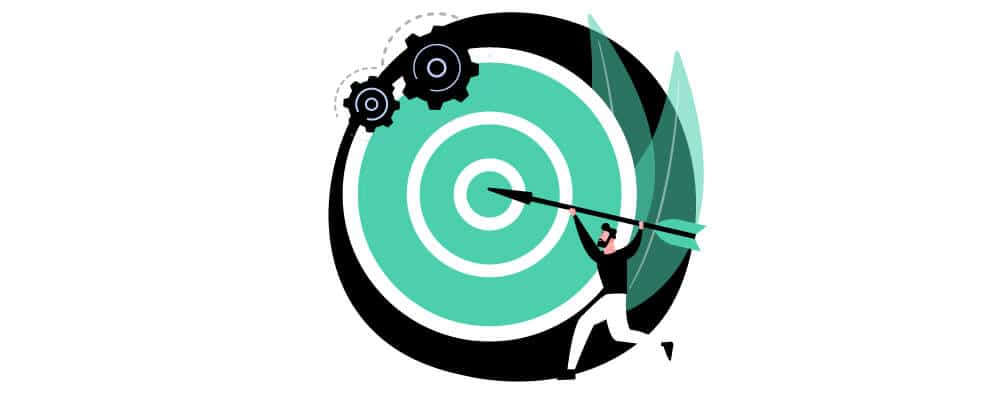
Controlling time, creating breaks, and removing distractions is the best way to help you focus on a task. If you need extra help because of a disorder, ask your doctor and the community how they handle concentrating issues. The personal stories of someone in the same situation as you can open your eyes to a new way of working.
Further Reading
Best Supplement For Regular Bowel Movement
Best Aluminum Free Deodorant for Men
Best Multivitamin for Vegetarians






